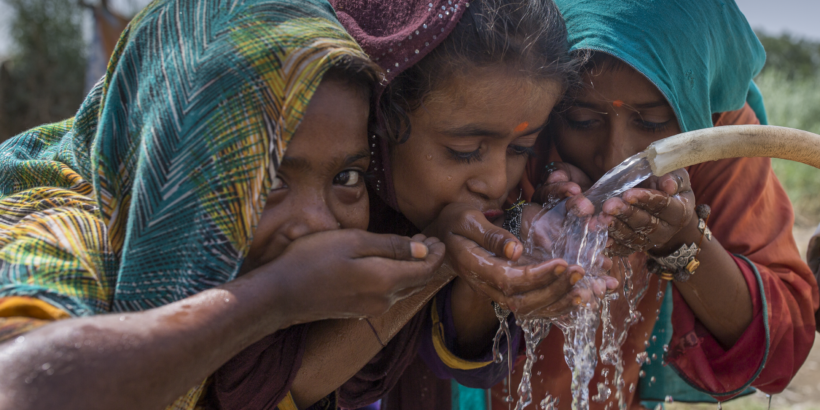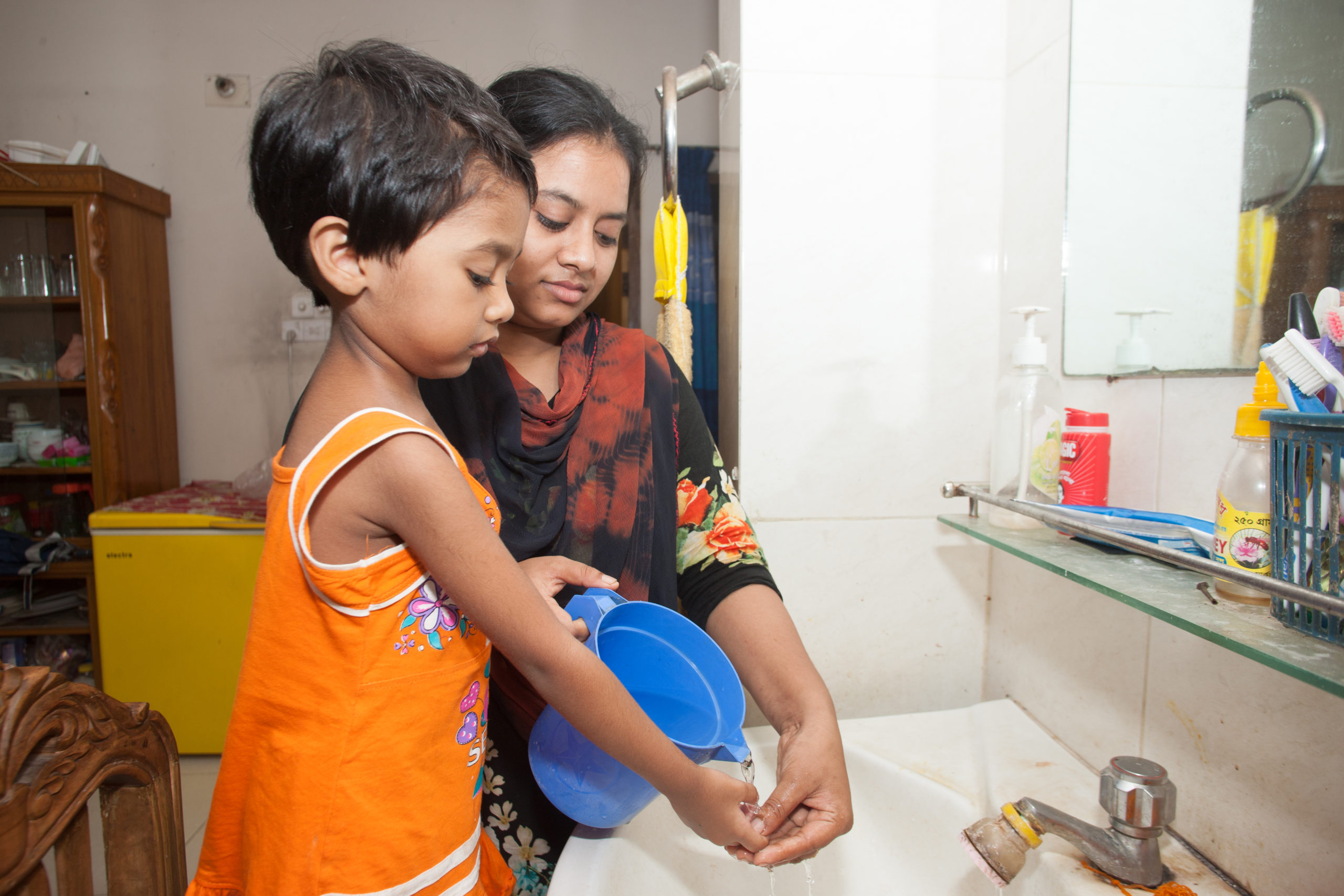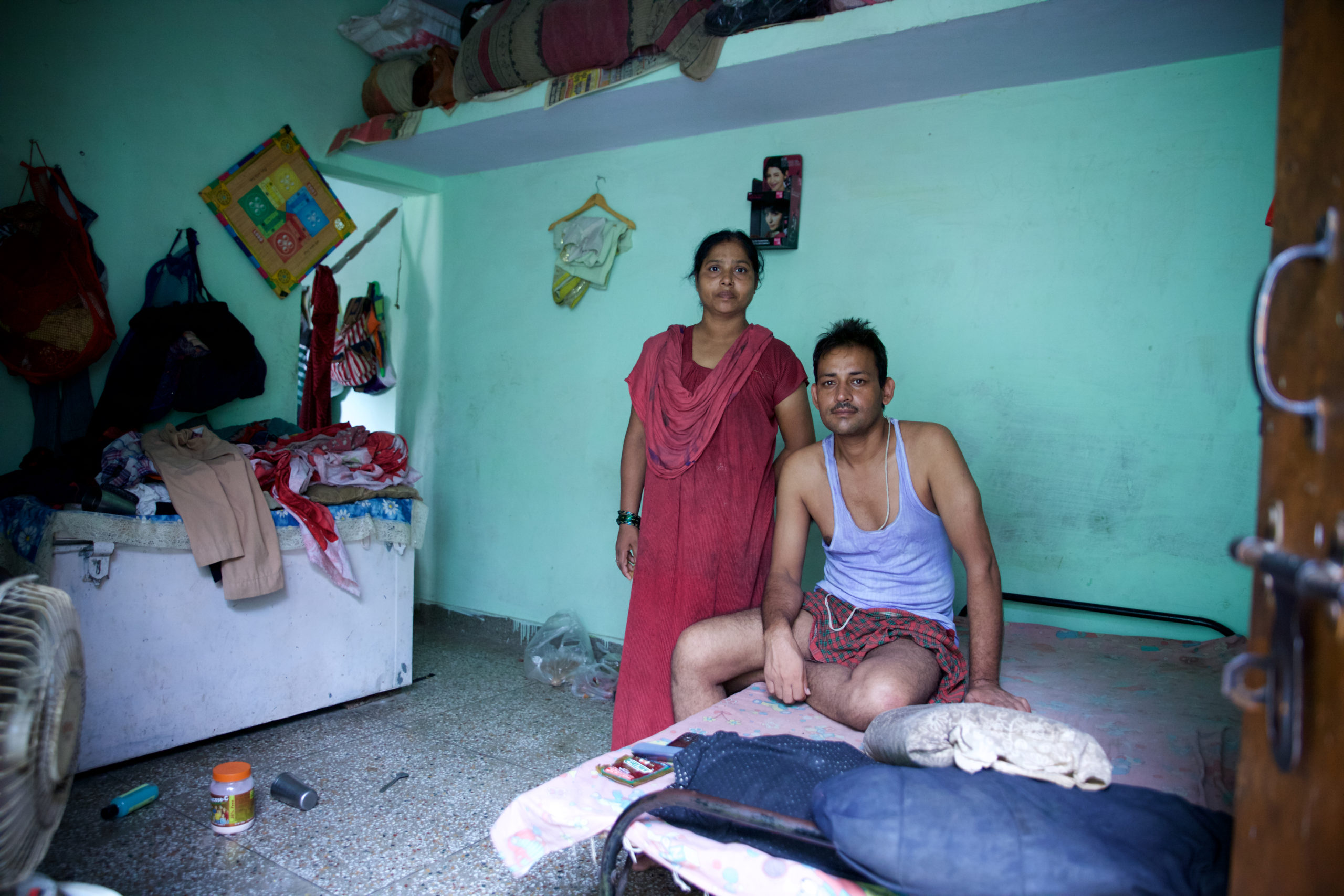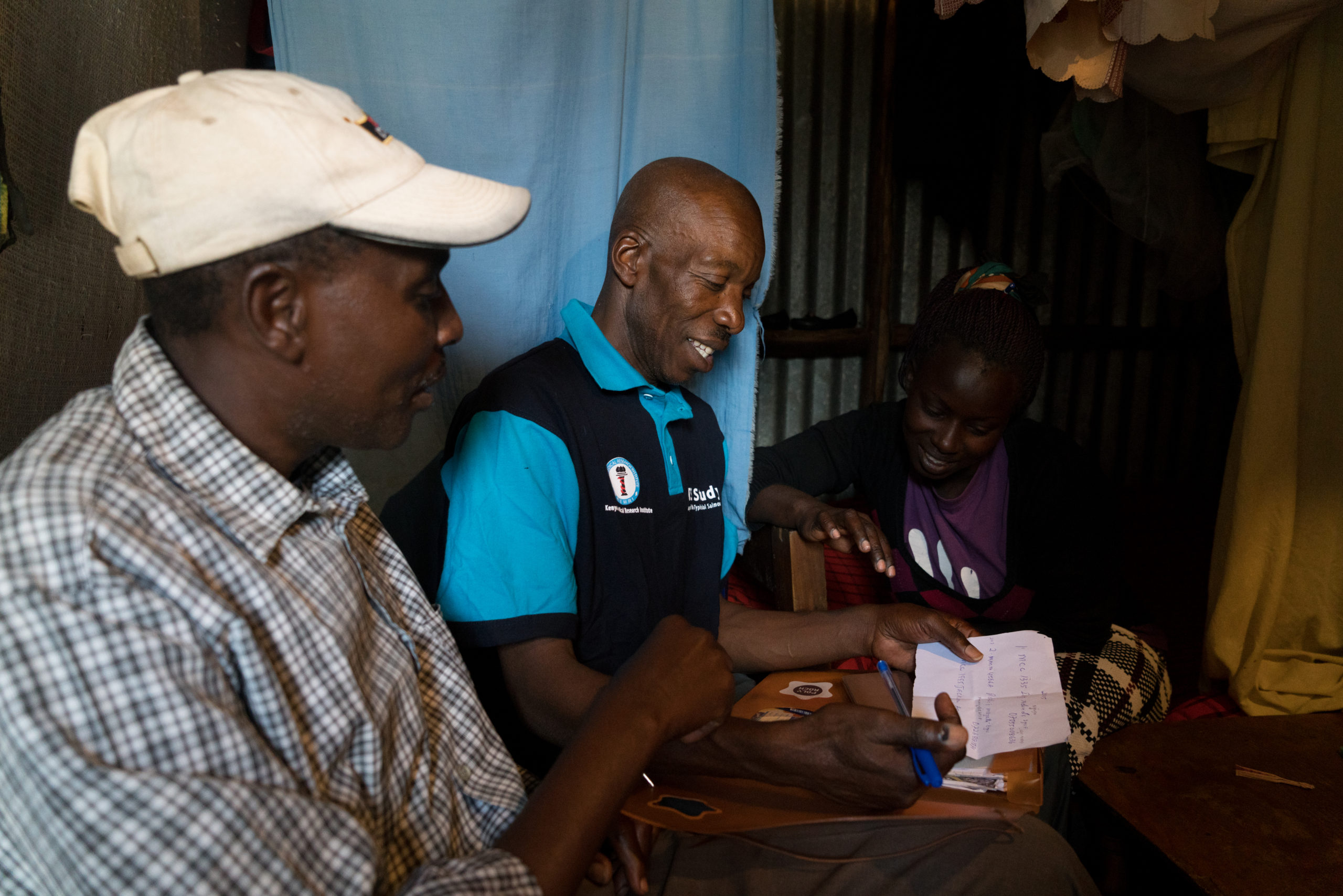What is the value of water? For those living in typhoid-endemic communities, access to clean and safe water can be the difference between a child completing her primary education or missing school and falling behind her peers. Or a family’s primary wage earner continuing to work to provide for his family, or losing his job and compromising his family’s already fragile financial situation. At worst, it can mean the difference between a child living a long and healthy life or dying from a preventable disease before the age of 15.
“I did not know that the water we use from the tap was contaminated and making my daughter so sick.”
Father of 6-year-old Fatia Ferdousi (pictured above)
Dhaka, Bangladesh
Unfortunately, these challenging and tragic dichotomies are too common for the 2.2 billion people living without access to clean, safe water. These communities are often forced to depend on contaminated water sources, leaving them vulnerable to waterborne diseases such as typhoid, a fecal-oral transmitted bacterial disease which thrives in environments where proper water and sanitation management systems are insufficient. This lack of access contributes to more than 9 million cases and 110,000 deaths due to typhoid each year.
“The water we drink is not very clean…My husband has been feeling under the weather again. He cannot afford to be sick again…”
Vijaylakshmi Pandey (left)
Jharsa, India
To break this transmission cycle and increase access to clean water, we need to focus on the things we know that work, including filtering and purifying water supplies; installing and maintaining pipes, sewers, toilets, and other sanitation and fecal sludge management systems; and encouraging hygiene behaviors such as handwashing and safe food handling. These interventions, complimented by the introduction and uptake of typhoid conjugate vaccines, can help to keep communities protected, healthy, and typhoid-free.
“Some people don’t have money to buy the tablets or the charcoal to boil the water, but we continue to educate them so that they understand the importance [of clean water]. When you become sick you realize that it’s important.”
Meshak Ongori (center), Community Health Worker
Mukuru, Kenya
However, to make this a reality we must overcome cost and resource hurdles and drum up political support. What are some actions those in the typhoid community can take to demonstrate how much we value water on World Water Day 2021?
- Advocates, experts, and decision-makers in the WASH and vaccination sectors should collaborate to advance, implement, and evaluate integrated solutions to prevent and control typhoid and other waterborne diseases.
- Raise awareness of typhoid and the need for integrated solutions across and within WASH and health advocacy and policy communities
- Integrate evidence-based WASH interventions with typhoid vaccination, treatment, and surveillance in comprehensive typhoid prevention and control policies and strategies
For more information on the relationship between water and typhoid and how integrated interventions can help to take on typhoid, check out our fact sheet Typhoid+ WASH.






